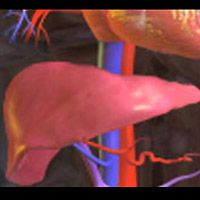Article
Combination Therapy: Quicker, Less Toxic Eradication of Hepatitis C in Liver Transplant Patients
Author(s):
Researchers from the Mayo Clinic recently reported, at the American Association for the Study of Liver Diseases (The Liver Meeting 2014), in Boston, MA, on the safety and efficacy in post-liver transplant of 2 new oral medications, simeprevir and sofosbuvir, within a 12-week treatment span.

Researchers from the Mayo Clinic recently reported, at the American Association for the Study of Liver Diseases (The Liver Meeting 2014), in Boston, MA, on the safety and efficacy in post-liver transplant of 2 new oral medications, simeprevir and sofosbuvir, within a 12-week treatment span.
Both simeprevir and sofosbuvir were granted approval by the FDA last year for pre-transplant use; however, they were not used as a combined therapy and were specifically required to be administered in addition to interferon and ribavirin.
As many hepatitis C patients who receive liver transplants eventually infect their new livers, their transplanted organs require anti-viral treatment to curb severe damage. However, the effects of traditional post-transplant hepatitis C therapy usually take approximately a year to manifest, often resulting in organ rejection.
Surakit Pungpapong, MD, transplant hepatologist at the Mayo Clinic as well as lead researcher of the study, said, “This is the first study to examine the use of these two new drugs — simeprevir and sofosbuvir – in liver transplant recipients, and, based on this large study, we find it to be a better option than current treatment.”
Standard pre- and post-transplant treatment requires the use of interferon injections coupled with ribavirin. “Interferon engages the human immune system to fight the hepatitis C virus, but this immune response can also lead to organ rejection,” said Pungpapong. He continued, “Interferon can cause a variety of side effects, including anemia, depression, irritability, flu symptoms, insomnia, and hair loss, among others.”
More than 100 post-transplant patients were enrolled at 3 sites; the study is still ongoing. Unfortunately these patients were reported to be too sick to be treated for hepatitis C prior to their transplant. Pungpapong said, “By the time liver cirrhosis occurs, it could be too late to use antiviral drugs.”
However, researchers were able to test both simeprevir and sofosbuvir without interferon in pre-transplantation patients in an a separate, clinical trial, and found the combination to be “a brief and effective therapy” as the virus was eradicated seamlessly and with significantly fewer side effects. Pungpanpong said, “We believe use of these drugs, both pre- and post- transplant represents a substantial clinical advance.”





